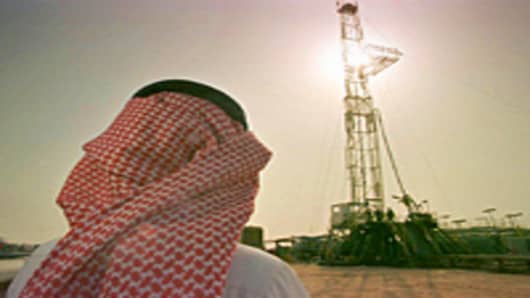As oil prices continue to trade at high levels, many investors are asking what to expect for oil in the second half of the year.
Robert Parker, senior advisor at Credit Suisse said in Riyadh that he thinks "oil settles down between 90 to 100 dollars a barrel, with Brent at 105."
This forecast is in stark contrast to that of JP Morgan's Head of Global Commodities, Blythe Masters, who said that she thinks oil will reach $130 by the end of the third quarter of 2011.
So where do oil prices go from here? There are lots of factors to consider including geopolitical events, supply issues, currency movements and how speculators move the markets. It's difficult to forecast oil prices but what we do know is oil at high prices for a long period of time could stall the global economic recovery and hinder future growth.
Parker made this point and added that the "tipping point for the global economy is oil at ($)135-140, but only if that price is sustained." He went on to explain that the "economics of alternative energy [are] much more attractive" than those of oil.
This brings us back to alternative energy: you cannot ignore it. Investment in alternatives hold many benefits: reducing global reliance on oil, offering sustainability and a cleaner environment, and the creation of a new sector to provide jobs and growth.
But is the western world, a main consumer of high-priced oil, the only one with an interest in exploring alternative energy?
Not really. It might surprise you to hear that Saudi Arabia is exploring alternatives with great rigor. Why? Because if Saudi continues to consume oil in line with its projected growth, by 2030 it will be unable to export its oil anymore because it will all be needed for internal consumption.
And Saudi, of course, is currently the world's largest exporter of oil, benefiting from high prices - so its quiet strategy is to explore and invest in alternatives to use such technology at home while continuing to export its black gold.
The race to create viable alternatives to oil is on and the sector presents both private and public equity investment opportunities that can help diversify portfolios - but when looking at this sector, the key is to think globally and remember that some of the best opportunities might be hiding in non-obvious places.


